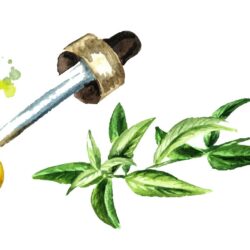St ress i s a natural reaction; it is a set of physical and physiological reactions of the body, in the face of a particular situation, which is said to be stressful. It can affect everyone, usually over a short period of time.Str ess i s triggered by situations that represent a “danger” to the individual. These stress si tuatio ns can be similar in various contexts depending on the age of the person. A situation of chronic stress, however, is pathological.
Where does the stress come from?
In common parled, we speak of posit ive st ress (eustress in English) or negative (distress). St ress is different from anxiety, it is an emotion while stress i s a re sponse mechanism that can lead to different emotions, including anxiety.
To understand how this works, one must know how to decode the functioning of the adrenergic system (commonly called t he sympathetic sys tem), whose neurotransmitters are a drenaline and norepinephrine.
A drenalin e plays a role in fear, anxiety and stress. It is secreted in response to stress or physical activity, resulting in an increase in heart rate, increased heart contractions, increased blood pressure, dilation of the bronchi and pupils. It responds to a need for energy, for example to deal with danger.
When the secretion of adren aline or norepinephrine is increased significantly, or when there are too many in the body (even exogenously), this can cause HTA (High Blood Pressure), cardiac arrhythmia or asthma.
It should be noted t hat the essential oil of geranium r osat is regulating the sympathetic system, an d the noble laurel essential oil i s regulating the vegetative nervous system (sympathetic and parasympathetic) to digestive tropism.
What is chronic stress?
Initially, str ess is a useful reaction that allows us to defend ourselves against external aggressions through certain reflexes. Only sometimes, these beautiful reflexes get flured, leading to expectations and exaggerated responses. The symptoms of stress then ap pear, which gradually become troublesome or even disabling.
Chronic stre ss can be c onsidered pathological and can lead to digestive disorders, headaches, sleep disorders, anxiety, insomnia, depression, musculoskeletal disorders, cardiovascular disease, hormonal disorders, etc.
In people with asthma, for example, s tress can cause asthma-related symptoms to deteriorate. The same is true for people who are depressed, anxious, or have psychological problems.
A stressful event causes a chain reaction that starts in the brain and results in the production of cortisol by the adrenal glands. Cortisol then activates two areas of the brain: the cer ebral cortex to react to stressful stimulus (leakage, attack, immobilization, compensation…) an d the hippocamp us, which will soothe the reaction. If th e str ess is too great or if it continues, the cortisol-saturated hippocampus can no longer regulate. Cortisol invades the brain and sets up depression. The altered areas are mainly the hippocampus, amygdala, anterior cingulate cortex and prefrontal cortex.
How do I know if I’m stressed?
The question is whether you get stressed a little or a lot, with a risk of switching to chronic stress. S tress sets in very gradually and insidiously, one does not always realize it, until an alert, which sometimes comes from the entourage. So take stock by asking yourself the right questions and identify the symptoms of stress. You can then move on to stress mana gement.
Stress causes symptoms in three areas:
- Emotional: irritation, nervousness, anxiety, melancholy, impaired concentration, memory, low self-esteem, ill-being, decreased libido, etc.
- Behavioural: withdrawal, disorganization, difficult and conflicting social and sentimental relationships, tendency to addiction (high alcohol consumption, tobacco, caffeine, sugar, drugs, drugs, etc.)
- Physica l: fatigue, insomnia, dizziness, increased heart rate, headaches, digestive problems, lower back or neck pain, feelings of oppression, unusual sweating, appetite disorders, etc.
How to fight stress naturally?
Means and techniques can be used to combat stress, especially when it is chronic, such as relaxation exercises or breathing.
Some essential oils:
Anxiolytic (inhalation causes reduced cortisol in the blood and lower blood pressure)
Relaxing the central nervous system (through the skin causes a decrease in the heart and respiratory rhythm involved in stress)
Calming down
- M andarin essential oi l:
Muscle relaxant, anxiolytic
Calming the sympathetic nervous system, balancing the central nervous system
Sedative (inhalation, diffusion)
Stimulating the central nervous system
Calming down
Myorelaxante, sedative even by inhalation
Reduces plasma cortisol
Psychologically beneficial effect of massage
Calming the CNS
Sedative, psycho-emotional and anti-stress tonic
Formula Idea: Pour into a n empty bo ttle, 25 ml of coconut vege table oil (for its soothing fragrance) and add 1.5 ml of ylang-ylang essential oil, 1.5 ml of tangerine and 1.5 ml of real lavender (i.e. a 5% dilution rate for action on the nervous system, stress management and well-being)
Posology: Apply the mixture to the sun’s plexus, along the spine and the arch in case of anxiety attack or stress.
Precautions for this preparation:
- Adult-only
- Risk of interaction with oral anticoagulants (clinical observation)
- Contra-indicated in pregnant or lactating women
- Avoid in combination with cortisone
- Contraindicated in case of glaucoma
- Contrasted in case of prostatic adenoma





